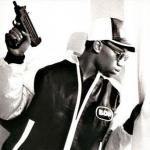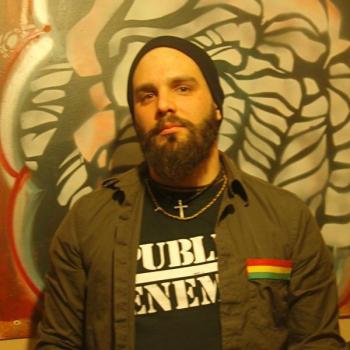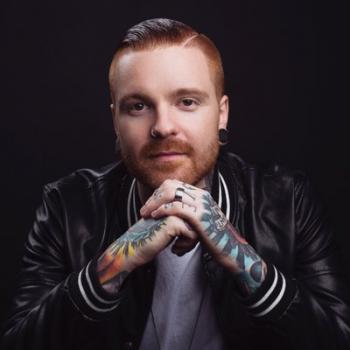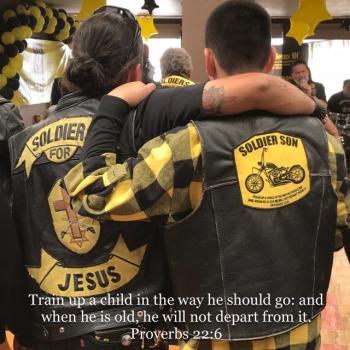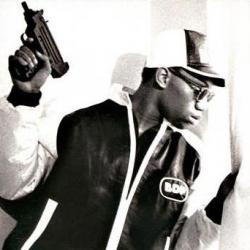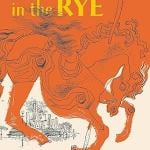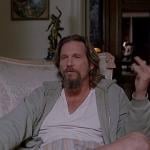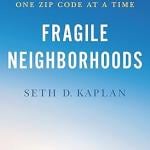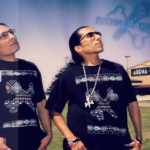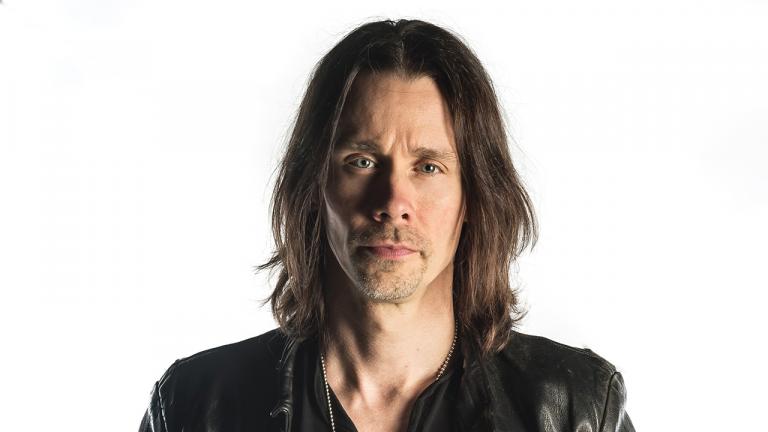
Myles Kennedy was just four years old when his father passed away from appendicitis, a treatable ailment that went undiagnosed.
A devout Christian Scientist, Kennedy’s father had refused medical care, in accordance with his religious beliefs. Kennedy’s father died in 1974, the Year of the Tiger, which is the third year in the 12-year cycle of the Chinese zodiac.
The singer, whose soulful voice has drawn favorable comparisons to the late Jeff Buckley, explores themes of love and loss related to his upbringing on his debut solo album, fittingly titled Year of the Tiger. The record is stripped down and intimate, with arrangements and instrumentation more befitting early rock n’ roll than the hard rock of his main bands, Alter Bridge and Slash Featuring Myles Kennedy and the Conspirators.
Alter Bridge has released five successful albums. Kennedy was one of the singers on Slash’s 2010 solo album, which led to him fronting the band full-time.
Earlier this year, Myles was my guest for a Q&A session at the Musicians Institute in Hollywood, where he performed two songs from Year of the Tiger.
Before the Q&A, we sat down for an even more intimate conversation for my podcast, No-Prize From God.
We talked about his father’s death, his parents Christian Science beliefs, and his own faith journey. Part of that conversation is transcribed below.
MYLES KENNEDY: It was always there, the idea of God. Initially when I was brought into this world both my mother and biological father were Christian Scientists. From what I understand, their parents were as well, or at least their mothers were. At least from what I remember – I don’t know if it’s evolved – but when it came to getting sick or something, you tried to work that out through prayer.
You had what was called a practitioner that you would call to help you work through it. It was a very different way of doing things from how I view things now.
The idea of the practitioner was, what, they were sort of an intercessory between the believer and God?
MYLES KENNEDY: Maybe, perhaps, yeah…
Specifically petition God, ‘Hey, fix this broken arm?’
MYLES KENNEDY: Perhaps. Yeah. That’s actually a really good question. It’s been so long, I don’t want to spread anything that’s not true. But it had something to do with that. Or maybe just to help you work through things like maybe somebody to confide in.
I feel like when I hear the term Christian Science, there are only two things that come to mind. One is the Christian Science Reading Rooms that I see. The other is, yes, this idea of faith healing through prayer to the extent of even discouraging believers from going to hospitals and to seek modern medical care. I don’t really know anything about it beyond those two things.
MYLES KENNEDY: Mary Baker Eddy, I think she was the genesis of the whole belief system. I remember hearing her name a lot growing up.
It’s a Christian faith but a modern Christian faith, like the Seventh Day Adventists or the Mormon Church.
MYLES KENNEDY: I believe so, I believe it’s along those lines. I want to say sometime in the 1800s is when it evolved.
[Christian Science] was all I knew early on. And then an interesting thing happened. My mom, before dad passed away, she actually worked at a nursing home. She was seeing a lot of people that were involved with that faith that were passing away and she started to notice that younger people were there as well, it wasn’t just elderly people. So she started to kind of put it together, that, ‘Hmm, well this is interesting. And I’ve got two young boys…’So she discussed with my father that, if she got sick, she did want to seek medical attention. And this all happened not too long before my dad did get sick. And he said, ‘Alright, well, I will respect your wishes, but if I get sick, you respect my wishes. I want to work it out through prayer.’ Which is very interesting that then within six months he’d passed away. She respected his wishes.
How old were you when he passed away?
MYLES KENNEDY:I was four.
Wow, very young. My mom passed away when I was 11.
MYLES KENNEDY: Oh, wow. I’m sorry.
I bring that up because, in my life, there’s a real [familiarity] with people who lost a parent in early childhood.
MYLES KENNEDY: Yeah, it’s a definite club that none of us wish to be part of; we all know the void, the thing that never really goes away.
And the defining role that it plays in the art you’re attracted to, the music you like –
MYLES KENNEDY: Oh, such a [defining role], absolutely. Right.
The people you gravitate toward, the people you date…
MYLES KENNEDY: It’s true. That’s fascinating, right?
It’s always there.
MYLES KENNEDY: It’s always there. It’s always there.
To try to view [that loss] through the lens of the religion that your father believed in, what was that experience like?
MYLES KENNEDY: I was so young it didn’t necessarily shake my faith. I never really questioned God, as I was four years old. Frankly, as far as I can remember, as far as being a young person, I always had unshakeable faith.
My mom then remarried an incredible man, who is a Methodist minister, so we were no longer part of the Christian Science realm. We then did deal with things through medical intervention if there was a problem.
I remember that was weird for me. Because I had been born into something where you didn’t do that. I had an absolute terror of doctors initially. I was just absolutely petrified. I had to get a wart removed on my hand once and I think that was the first memory I have of actually going to a doctor. And it was as if I was going to the gallows, you know? [Laughs] I remember having severe anxiety because I was raised to believe that you didn’t do that. So that was kind of interesting.
It had to feel like going to outer space in a way, too.
MYLES KENNEDY: It did!
The science of it all around you, people in white coats…
MYLES KENNEDY: Yeah it did! Yeah! It was so clinical. It wasn’t all warm and fuzzy. I think that’s one of the things about dealing with things through prayer – I mean, it’s hard to even articulate. It’s just a different concept.
So we were then Methodists, or ‘potluck Protestants’ as my friends would call me [laughs]. And that was fine. I immersed myself in it and tried to understand it all. I read and studied the Bible. And that was my scene for all the way up through my twenties, really. I was a card-carrying member.
As that intersected with music, as a teenager, were you into Christian rock bands?
MYLES KENNEDY: I was! I was, in fact, when Stryper first came out, that was a big deal for me. I loved metal and I loved hard rock but I knew that my parents, that it wasn’t really their jam, and then Stryper came out. That was an easy one to go to that show! There were some other bands at that point but they didn’t really connect. There was Bloodgood, I remember them, cause they opened for Stryper. Petra was the earliest thing I remember but it wasn’t quite heavy enough for me, ya’ know? That wasn’t going to satiate my need.
There was no Tooth & Nail Records in the ‘80s.
MYLES KENNEDY: Right, that’s a good point. I think Stryper was on Enigma, if I remember correctly.
I was definitely really into it. I tried to walk the straight and narrow. But as time went on there were just questions that started to come up. And the logical part of my brain started asking questions that I couldn’t get answers for, no matter how intelligent the person was who was a person of faith, something still wasn’t ringing true with me.
Suddenly the idea of there being an absolute and the idea of there being some sort of deity or an afterlife I was starting to question. And that was tough. That was really difficult. Because, you know, that was my whole foundation. It’s such an important part of one’s life; how you deal with life, how you deal with anxiety, how you deal with whatever the world or the universe throws your way. So, it kind of sucked [laughs].
And I have friends who are still very passionate about what they believe. I kind of envy them. Now that I’m, I don’t know I guess at this point I’m probably more of a, I guess the term is ‘agnostic.’ I guess I fall somewhere in the middle… I know some people have real issue when people say this but I almost feel like it takes as much faith to believe there isn’t a God as it does for me to sit here and go, ‘No, there absolutely is a God.’
You’re open to new information. Your mind could be changed at some point, one way or another, in your journey.
MYLES KENNEDY: Exactly. But I just… I don’t see it. I haven’t.
Have you ever had experiences that you felt were supernatural or otherwise inexplicable? Certainly as a musician I’m sure there’s an argument to be made that you’re tapping into something when you’re writing and performing. Do you feel like there’s something bigger than us, in that sense?
MYLES KENNEDY: Hmm. Um, yeah, I’ve had moments where music and the power of music, there’s something very spiritual and hard to articulate, something very magical [laughs]. But do I feel like that comes from a higher power? I don’t know.
For me, I found a lot of solace in the idea of now, the idea of being present. That’s the thing with music. When you immerse yourself in it, whether you’re writing – for me, a lot of it’s improvisation. A lot of my truly transcendental states have been achieved, back in the days when I used to play fusion, with improvisation, when you’re definitely staying in the moment. There would just be things where you’re like, ‘Wow.’ You’re not worried about what’s coming next you’re not paying attention to what just happened, you’re locked in the moment. It’s just, ‘This is living, this is what it’s all about.’
It’s so hard to hold onto.
MYLES KENNEDY: It’s so hard to harness.
It’s so transient.
MYLES KENNEDY: It is, it is. And it’s just as hard, it’s why meditating can be so hard, because it kind of takes practice. Because your brain is constantly, always desiring what’s coming next or asking questions or trying to foresee things. That can somehow get in the way of really enjoying.
Yes. As someone who suffers from obsessive-compulsive disorder and anxiety, there is so much worry about the future or focus on the scars of the past or whatever. That’s the hardest part, is to be present. And that’s actually the ‘cure’ for it, to actually be in the moment, to be where you are.
MYLES KENNEDY: Absolutely, absolutely.
There’s an argument to be made that a lot of faith traditions have such an emphasis on the afterlife and a reward and punishment system that you’re aspiring to reach some sort of destination, versus the idea that the journey itself is the destination.
MYLES KENNEDY: Exactly. It’s the idea that there’s a pot of gold at the end of the rainbow, or whatever it is. But I think what kind of planted the seed for me – I should back up a little bit. When I was about 18 I was watching the Bill Moyers special [1988’s The Power of Myth] where he interviewed Joseph Campbell. I don’t know if you’re familiar with Joseph Campbell. He played a big part in inspiring George Lucas and many other artists during that period.
He stumbled onto some really cool concepts, basically taking so many different myths from so many different cultures and extracting some truth and a common theme from it.
‘The hero’s journey’ and that whole thing…?
MYLES KENNEDY: Yes, [the book] The Hero with a Thousand Faces. He did it in such a brilliant way. I was like, ‘Wow, this guy is really onto something here.’
But once again, it scared me. Because what he’s saying here with a lot of these myths, or at least the truth he’s extracting, is the idea of staying present [and] that there may not be an afterlife. This isn’t congruent with what I’d been led to believe. So as much as I appreciate what he’s saying here I’m kind of frightened of it. It kind of scares me because it’s going to shake my foundation. But it was one of those things I couldn’t stop thinking about.
So I stared reading some books and talking to people and the more time has gone on, I’ve gradually embraced this more almost Eastern philosophy has kind of taken me away from the Christian faith. It’s brought me a lot of solace. I struggle with anxiety and depression. It’s really been helpful, really, really helpful. I’ve recently been on a Ram Dass kick.
I want to have Ram Dass on the podcast. He’s on my wish list.
MYLES KENNEDY: That’d be great! He seems so enlightened.
It’s still a journey. I don’t have it all sussed out. All I can say is I feel like I’m doing what works for me. That’s why I try to be careful. Some people are really vocal about being anti-religion and anti-God. I try to be careful there.
They want to put you into a category, even if it’s this New Atheism, which in many ways resembles the fundamentalism and legalism of the worst of religion.
MYLES KENNEDY: That’s true.
That’s not to paint all atheists with that brush. But this idea that religion is the single most cause of all the pain and suffering in the world and deprogramming everybody from it with this evangelistic zeal – that feels to me like anybody else on my doorstep whose mission is to ‘save’ me.
MYLES KENNEDY: Yeah, it’s true, I think you’re dead on. As the [John Lennon] song says, ‘Whatever gets you thru the night, it’s alright.’ That’s what I’ve really come to believe. Whatever works for you, go with it.
But don’t be a part of something that hurts somebody else. Don’t buy into the idea that your faith is the only way and if people don’t subscribe to your faith then you need to take them out or chastise them or whatever it is.
That’s where I struggle, because that’s where it gets dangerous.
To hear the entire conversation, check out the No-Prize From God podcast on Apple Podcasts or wherever you like to listen.

